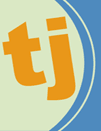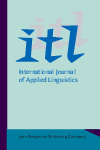
Deutsch als Fremdsprache-Zeitschrift zur Theorie und Praxis des Faches Deutsch als Fremdsprache
Scope & Guideline
Navigating the Future of German Language Instruction
Introduction
Aims and Scopes
- Pedagogical Approaches to Language Teaching:
The journal emphasizes innovative didactic methodologies in teaching German as a foreign language, exploring various pedagogical frameworks that enhance language acquisition. - Sociolinguistic and Cultural Contexts:
Research on how sociolinguistic factors and cultural contexts influence the learning and teaching of German is a central theme, examining the interplay between language and culture. - Multilingualism and Language Policy:
The journal addresses issues related to multilingualism, including language policy, language rights, and the implications of multilingual education for teaching German. - Empirical Research and Language Assessment:
It includes studies on language assessment and empirical research methods that provide insights into learner competencies and the effectiveness of teaching strategies. - Intercultural Communication:
The focus on intercultural communication highlights the importance of understanding cultural differences in language education, preparing learners for global interactions. - Integration of Technology in Language Learning:
The journal explores how digital tools and online resources, such as YouTube and virtual exchanges, are utilized in teaching German as a foreign language.
Trending and Emerging
- Gender-sensitive Language Teaching:
An increasing focus on gender-sensitive and inclusive language practices highlights the importance of addressing gender issues in language education, reflecting broader societal changes. - Digital Learning Environments:
The exploration of digital tools and platforms, such as YouTube and virtual exchanges, illustrates a trend towards integrating technology into language teaching, catering to modern learners' needs. - Multilingual Education and Intercomprehension:
The rise of multilingual education emphasizes the need for teaching strategies that promote intercomprehension among languages, fostering a more inclusive approach to language learning. - Critical Pedagogy:
There is a growing interest in critical pedagogy within language teaching, encouraging educators to reflect on power dynamics and cultural biases in language education. - Authentic Language Use:
Research focusing on authentic language use in everyday contexts is trending, as educators seek to prepare learners for real-world communication rather than solely classroom-based language.
Declining or Waning
- Traditional Grammar Instruction:
There seems to be a waning interest in traditional grammar instruction methods, with fewer studies focusing solely on prescriptive grammar rules in favor of more communicative and contextual approaches. - Contrastive Linguistics:
Research specifically focused on contrastive analysis between German and other languages has diminished, suggesting a shift toward more integrative and practical approaches to language learning. - Literature-Centric Language Teaching:
While literature remains a relevant topic, the focus on literature-centric methodologies in language teaching has decreased, possibly due to the increasing emphasis on contemporary and practical uses of language. - Standardized Language Testing:
There appears to be a reduced focus on standardized language testing methods, as the field moves towards more dynamic and formative assessment practices. - Regional Studies in Language Education:
Studies specifically addressing regional or localized approaches to language education are less frequent, indicating a potential move towards more global or universal concepts in teaching.
Similar Journals

Journal of Technology and Chinese Language Teaching
Connecting Scholars and Practitioners in Tech-Enhanced LearningJournal of Technology and Chinese Language Teaching, published by JOURNAL TECHNOLOGY & CHINESE LANGUAGE TEACHING, serves as an influential platform for scholars and practitioners in the intersecting fields of technology, language education, and linguistic research. With an ISSN of 1949-260X, this journal strives to disseminate cutting-edge research and innovative practices aimed at enhancing the teaching and learning of Chinese language through technological advancements. Operated from the United States, it currently occupies valuable quartiles within its categories, showcasing its significance—ranking Q4 in Computer Science Applications, Q3 in Education, and Q2 in Linguistics and Language. As it spans from 2019 to 2024, the journal provides a rich repository for international contributions, fostering a collaborative environment for educators, researchers, and students alike. With both Scopus and HIndex metrics reflecting a solid reputation, the Journal of Technology and Chinese Language Teaching is pivotal for those keen on pushing the boundaries of language instruction in the digital age.

TESOL Journal
Shaping the Future of Multilingual EducationTESOL Journal, published by Wiley, is a premier academic journal dedicated to advancing the field of Teaching English to Speakers of Other Languages (TESOL). With an esteemed reputation reflected in its high impact factor and its Q1 ranking in both Education and Linguistics and Language categories for 2023, this journal serves as a critical resource for researchers, educators, and policy-makers. It covers a wide spectrum of topics related to language acquisition, pedagogical innovations, and educational strategies in TESOL, contributing significantly to the discourse around multilingualism and effective teaching practices. The journal is notable not only for its rigorous peer-review process but also for its commitment to disseminating high-quality research that informs and inspires practice in diverse educational settings. Interested readers can access articles through traditional subscription methods, ensuring that groundbreaking research is available to a broad audience. With converged years spanning from 2010 to 2024, TESOL Journal continues to evolve, making it a vital publication for anyone interested in the complexities of language education.

English Teaching and Learning
Empowering Educators with Research-Driven PracticesEnglish Teaching and Learning is a distinguished academic journal published by SPRINGER SINGAPORE PTE LTD, focusing on the dynamic fields of education and linguistics. With an ISSN of 1023-7267 and an E-ISSN of 2522-8560, this journal serves as a vital platform for researchers, educators, and practitioners interested in advancing the understanding of English language instruction and learning methodologies. Recognized for its high standards, it has achieved a notable Q2 ranking in Education and a prestigious Q1 ranking in Linguistics and Language in 2023, underscoring its impact within these essential scholarly fields. The journal, which spans a converged publication period from 2015 to 2024, endeavors to disseminate innovative research, theoretical insights, and practical applications, making it an invaluable resource for anyone committed to enhancing English education globally. Although it does not operate under an open-access model, its contributions are pivotal in shaping contemporary discourse in English teaching and learning.

Yazyk i Kultura-Language and Culture
Exploring the Nexus of Language and CultureYazyk i Kultura - Language and Culture is a distinguished academic journal dedicated to the exploration of linguistic and cultural issues across various contexts. Published by TOMSK STATE UNIVERSITY, this journal serves as a vital resource for researchers, scholars, and students interested in the intricate interplay between language and culture. With an ISSN of 1999-6195 and an E-ISSN of 2311-3235, it engages a global community in disseminating high-quality research articles, reviews, and theoretical discussions. Although the journal is not categorized as Open Access, it ensures that its contents contribute significantly to the academic discourse within the fields of linguistics, cultural studies, and social sciences. With a commitment to promoting scholarly research, Yazyk i Kultura is positioned to shape contemporary conversations about language's role in cultural dynamics, making it an essential outlet for those dedicated to advancing understanding in this interdisciplinary domain.

ITL-International Journal of Applied Linguistics
Elevating academic dialogue in the realm of applied linguistics.ITL-International Journal of Applied Linguistics, published by JOHN BENJAMINS PUBLISHING CO in Belgium, stands as a leading journal in the field of applied linguistics and education, recognized for its rigorous scholarship and impactful contributions. With an impressive ranking of Q1 in both the Education and Linguistics and Language categories, ITL holds its place among the top journals globally, featuring in the Scopus rankings with a notable 91st percentile in both Arts and Humanities as well as Social Sciences. The journal aims to disseminate innovative research exploring the intersection of linguistics, language acquisition, and pedagogical practices, fostering a rich academic dialogue among researchers, educators, and practitioners. Though not currently an open access journal, ITL remains accessible to a broad readership, with an emphasis on high-quality, peer-reviewed articles that inform and inspire advancements in applied linguistics. The journal's commitment to academic excellence and relevance makes it an essential resource for those seeking to understand and contribute to the dynamic landscape of language studies.

Tejuelo-Didactica de la Lengua y la Literatura
Empowering Educators Through Innovative Research.Tejuelo-Didactica de la Lengua y la Literatura, published by Junta Extremadura, Consejería Educación, is a prestigious open-access journal based in Spain that has been serving the academic community since its inception in 2008. With a focus on education, linguistics, and music, the journal proudly holds a strong position in the academic landscape, notably ranking in the top quartile (Q1) for both linguistics and music in 2023. Its impressive Scopus rankings further highlight its relevance, showcasing a remarkable 83rd percentile in the field of Arts and Humanities, particularly in Music. As part of the ongoing converged years from 2018 to 2024, Tejuelo aims to foster dialogue among researchers, educators, and practitioners, providing a platform for innovative research and insightful discussions that enhance the understanding and teaching of language and literature. By promoting scholarly exchange through open access, the journal plays a vital role in advancing knowledge and practices in its fields, making it an essential resource for students and professionals alike.

Language Teaching for Young Learners
Empowering educators to inspire young language learners.Language Teaching for Young Learners, published by John Benjamins Publishing Co, is a premier journal dedicated to enhancing the pedagogy of language acquisition in early childhood education. Since its inception in 2019, it has rapidly established itself within the research community, reflected by its high Scopus rankings—placing it in the 85th percentile for Language and Linguistics and the 84th percentile for Education. The journal aims to provide a platform for innovative research, practical insights, and theoretical discussions surrounding the teaching of languages to young learners, thus contributing significantly to the fields of Education and Linguistics. With an open access model currently unavailable, it caters to a diverse global audience, including researchers, educators, and policy-makers, keen on improving pedagogical practices. Located in the Netherlands, the journal's commitment to academic excellence is evident through its Q1 and Q2 rankings in Linguistics and Language and Education respectively, encouraging continual discourse in cultivating effective language education practices.

Asian Englishes
Showcasing the Evolution of English Varieties in Asian ContextsAsian Englishes, published by Routledge Journals, Taylor & Francis Ltd, is a leading journal in the field of linguistics and language studies, showcasing diverse English varieties across Asia and their socio-cultural contexts. With an impressive impact factor, it ranks in the Q1 category for both Linguistics and Language disciplines, reflecting its exceptional contribution to the academic community. The journal serves as a vital platform for researchers, professionals, and students who seek to explore the complexities and evolving nature of English usage in Asian settings, providing insightful analyses and fostering scholarly discourse since its inception in 1998. Although not an open-access journal, Asian Englishes is highly regarded in prominent databases such as Scopus, where it ranks in the 90th percentile across multiple categories. The journal's commitment to advancing knowledge in language variation and change remains central to its objectives, making it an essential resource for those dedicated to understanding the dynamics of English in Asian contexts.

Synergies Mexique
Connecting Cultures: Mexico in a Global ContextSynergies Mexique is a distinguished open-access journal dedicated to exploring contemporary issues and scholarly discussions related to Mexico and its interconnections with global topics. Published by the prestigious Universidad Nacional Autónoma de México in collaboration with GERFLINT, this journal has been making its knowledge freely available since 2011, thereby fostering collaboration and dissemination of research findings among academics, professionals, and students. Although the H-index and precise scope are currently unspecified, the journal is recognized for its commitment to high-quality research and enriching the academic discourse on Mexican society, culture, economy, and politics. By providing a platform for diverse perspectives, Synergies Mexique plays a crucial role in enhancing understanding and appreciation of Mexico in the global context, making it an invaluable resource for researchers and students alike.

RELC Journal
Advancing Knowledge in Education and LinguisticsRELC Journal, published by SAGE Publications Ltd, stands as a leading platform in the fields of Education and Linguistics, boasting an impressive Q1 ranking in both categories according to the latest metrics. Established in 1970 and continuing its commitment to academic excellence through 2024, the journal features rigorous peer-reviewed research that explores the intersections of language, culture, and pedagogy. With a notable Scopus ranking that places it in the 98th percentile for both Language and Linguistics (Rank #16/1088) and Education (Rank #91/1543), the RELC Journal is essential for scholars, educators, and practitioners seeking to contribute to and stay abreast of cutting-edge developments in their respective fields. Although currently not open access, the journal remains accessible to a diverse audience and invites contributions that challenge conventional perspectives and inspire innovative practices in language education.